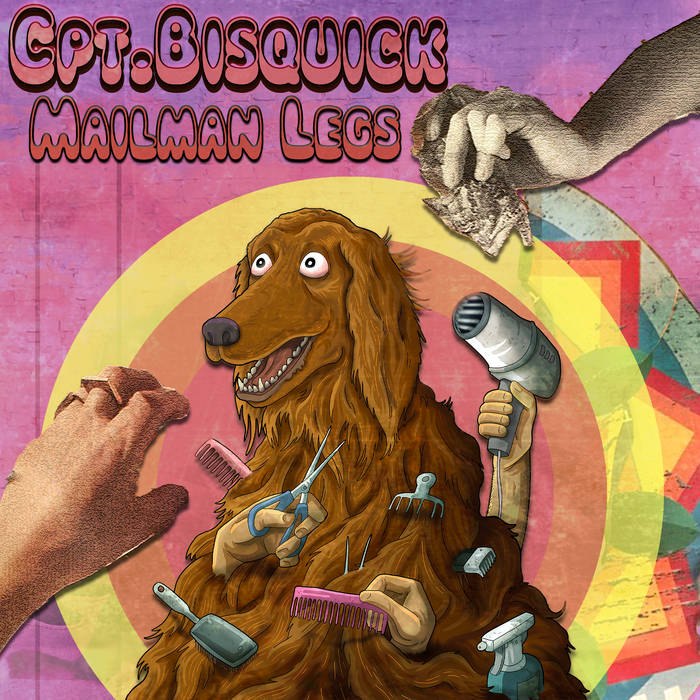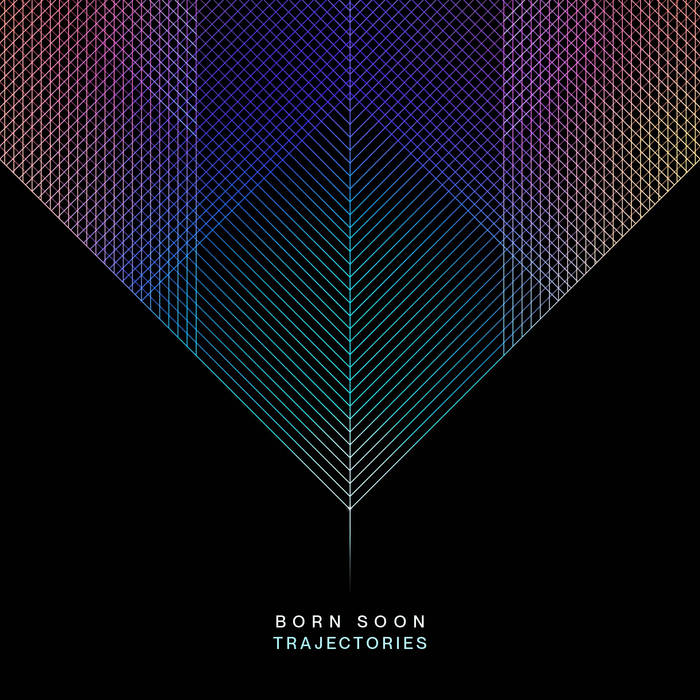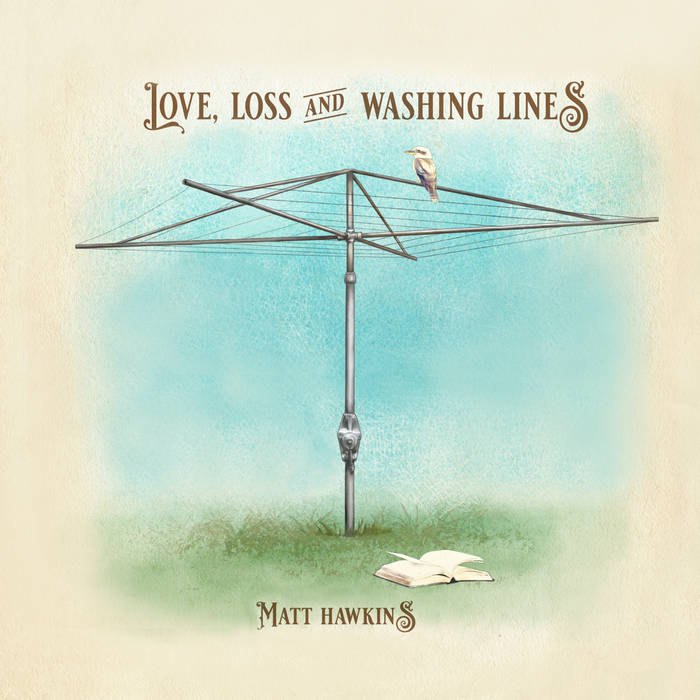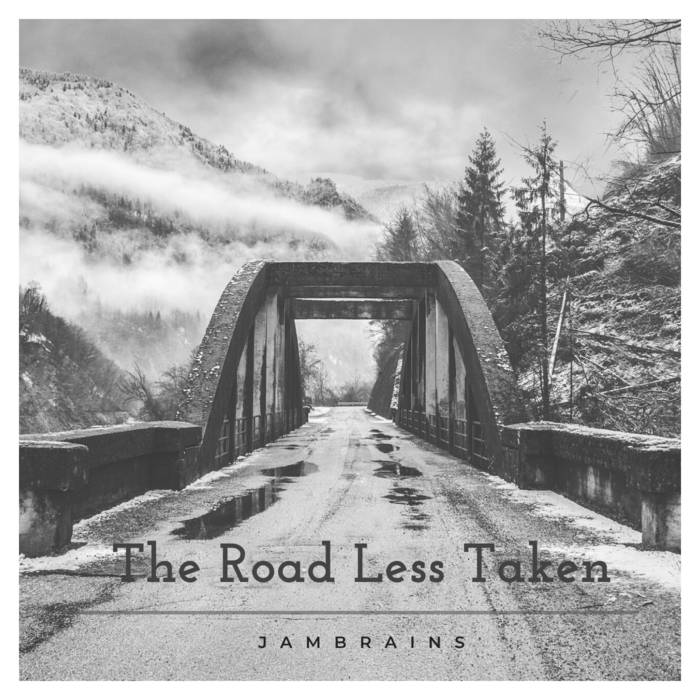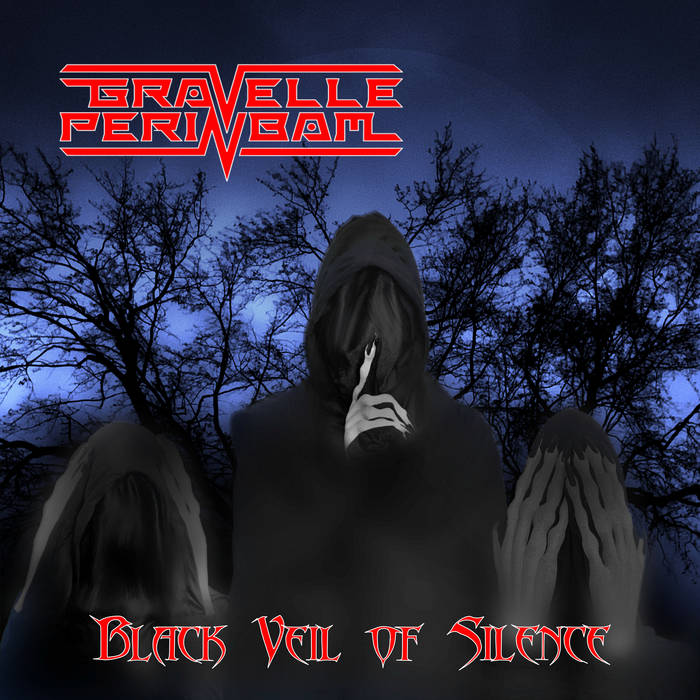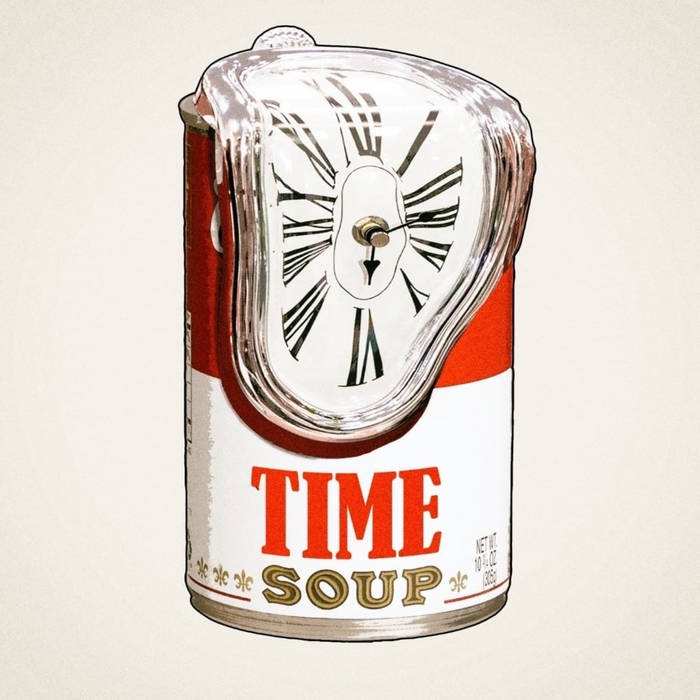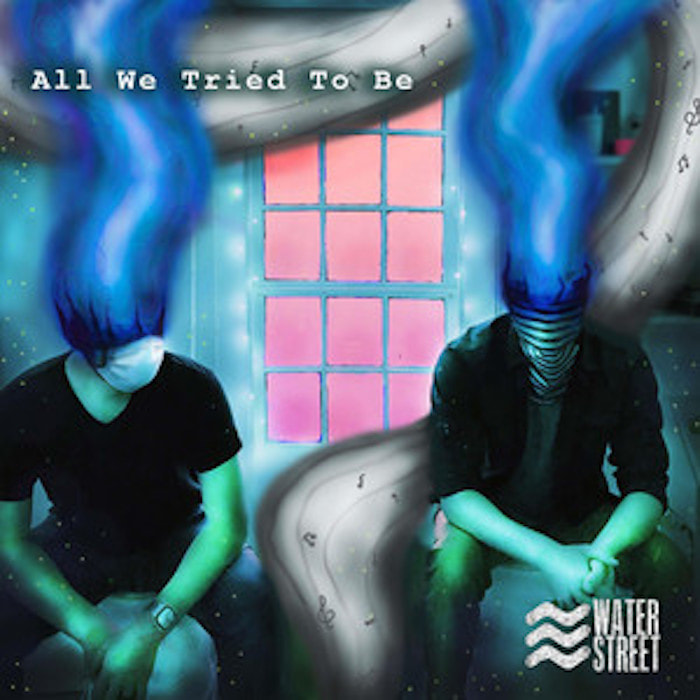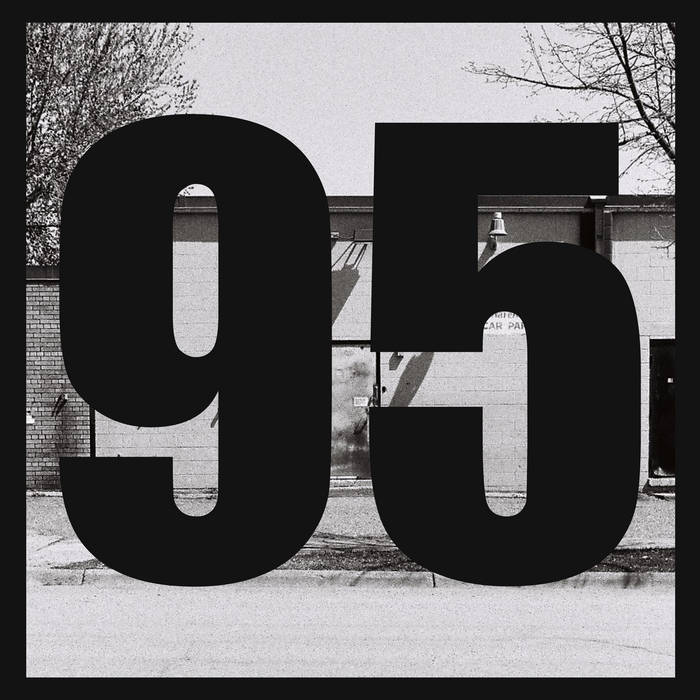|
It was a couple years back that we reviewed the EP Club Zoo from Cpt. Bisquick aka Graham Albright. The artist is back with an album called Mailman Legs and contains basically a double album's worth of material. There are fifteen tracks total (with two acting more as an interlude).
Mailman Legs is a loose, often playful but heartfelt album. The songs are dynamic and easily fuse a number of different genres. In fact these transitions can happen multiple times per song. After a brief intro which sounds like an ad from the ’50s in a different dimension the album gets going with “Drinking Cup.” I was getting Andrew Bird type vibes from the vocals and the light quality to the music. In this song alone there’s so much to appreciate than just the normal things like a catchy vocal melody. The psychedelic guitar solo before the two-minute mark for brief seconds momentarily turns into heavy metal. I’m not sure how but it sounded seamless. Very cool with subtle complexity that moves so fast you might not notice. “Zilch, Forever” showcases more of the exceptional technical skills. The song not only avoids 4/4 time but changes BPM on a dime without sounding forced. There’s a Bossa nova quality to the song but Albright turns it on his head. David Bryne is an exceptional musician from the band Talking Heads but it’s also the name of the fourth track on the album. It doesn't sound too much like Talking Heads but has a lot of other redeeming qualities. The juxtaposition between different dynamic energy and the other styles continues to impress. The violin or fiddle they use sounds fantastic. The inventive and unique approach continues with “Leave, Party, Leave.” Within the first thirty seconds I was wowed by how the instrumentation coalesced and transformed. This was the first time the band Ween came to mind, which actually is a band that does something similar. The album continues with truly diverse songs that mesh genres in some of the most seamless ways since Beck. Some of the highlights include “My Moody Ragtime” which contains some serene and warm melodies combined with some of the memorable vocals. “Smile, Mood, Smile” is more lush and intimate and those Andrew Bird vibes come back. There’s even some French in the song and a throwback to ’50s pop harmonies while creating a playful and light quality. “Paul Rudd Type #2” made me laugh but was just another example of songs that can change in an instant without sounding forced. The tail end of the album doesn't lack either. One of the highlights was “Algeron” but the closer “Lapdog” rocks out perhaps harder than any of the other songs. The amount of music they fit into this album is incredible. Albright is able to do this without a tinge of pretense. This is an album that truly meshes genres in a very real way and one listening experience that shouldn’t be passive. Take your time with this one because there's something to explore. Highly recommended.
Become A Fan
0 Comments
Born Soon is Philadelphia-based Dan Semenza’s solo project. Trajectories, a five-song EP, is his debut release.
The songs are piano- and guitar-driven, and fall into the indie/rock canon. Trajectories brings straight-ahead drums and melodic bass, keyboard layers and a fine helping of varied guitar tones, all set off by Semenza’s rich rock baritone. Like a favorite old sweater, this won’t set a new fashion trend, but it sure is comforting to pull on and wrap around yourself. That old sweater can help you contemplate, as Semenza does through his lyrics. He touches on some weighty topics, including death of a loved one, figuring out his place in the world, and the impending birth of his son. These are deeply personal topics, but the lyrics are abstract enough to allow each listener to connect and relate in his own way. And sometimes, in that old sweater, you find a scrap of something in a pocket that brings back good memories. “Ruiner” has a stick-to-you chorus to go with its chunka-chunka electric guitar and a good electronica-influenced bridge with dextrous bass work. The piano support on the chorus of “Day Ghost” is a nice touch of arrangement and production. On “So Fast, So Slow” the keyboard washes contrast nicely with the sharper clean-guitar tones, and Semenza has nice heart-tugging sustained chords on the solid breakdown section. You might find a small hole in the sweater, too. There’s just one small tear in Trajectories, on “Monsters.” It’s a lovely acoustic lullaby with nice string parts and soft piano support most of the way. As the song approaches its end, the piano chords turn to crashing, and it’s a bit much for the lightness of the arrangement. The plaintive acoustic ballad “April” closes the set, with Semenza singing, “I’m just searching for a little peace of mind.”.Hopefully Trajectories has helped him (and us) get a little closer. At least we have a nice cozy wrap to help us as we walk forward.
Matt Hawkins markets himself as “suburban dad acoustic folk pop” and has been making music since the late 1990’s. In that time he was in a band called Waiting for Tom which eventually dissolved and in the not too distant past took out his guitar once again and started to get the drive to make music after reading a book entitled Boy Swallows Universe which led to Love, Loss and Washing Lines.
The album contains twelve songs and definitely has an acoustic folk quality. It’s a warm and comforting album with accessible songs starting with “Bridge of Stories” and you are greeted with strummed acoustic guitar, a 4/4 beat, some piano and bass. It’s a simple song but nicely structured and one of the catchiest songs on the album. I did like the tone and inflection of his vocals right away. The song builds with intensity as it progresses into something more and more triumphant sounding. “The Very Thought” is more intimate, pensive and melancholy but quite beautiful. The orchestral strings cry on this song along with ghostly vocal harmonies. Hawkins knocks it out of the park with the vocals. He displays some range here and is able to convey a good amount of emotion. “Never Too Far (feat. Aleta Booth)” contained vocal harmonies. The female and male sounded good together. I will admit it wasn’t one of my favorites but was still a solid song. “The Ocean Can’t Hold My Love” is very upbeat and warm with rolling brushes, more acoustic guitar and fantastic work on the fiddle or violin. The song does give you a sense that you can go out and change the world. A similar energy is created on “Toowoomba” but the song is much more nostalgic not only with the feeling from the instrumentation but the lyrics. Hawkins goes into his past and recalls the innocence and freedom of childhood days but when he sings “we’re finally on our way” it feels like he’s projecting into the future. The album settles into some the low hum of melancholy on “If I’d Known” and “From Now On.”As the album progresses there are a number of notable songs. Perhaps the most single worthy song is “You’re Not Going Home Like That” while the closer is an introspective “Every Place I Go, There I Am” and one of my personal favorites. Some of the songs did have moments that did feel too saccharine for my personal taste. That being said I enjoyed the warm qualities and overall positive vibes that come with this album. Even the more somber songs leave you feeling better. There’s a good amount to appreciate with the top notch production, impressive delivery and solid song writing. Recommended.
It’s been a couple years since Jambrains aka Swedish singer/songwriter and multi-instrumentalist Johan Alm released new music. I’ve been familiar with the artist after reviewing a number of his previous releases including Faded Dreams, 900 Days and Life, Love & Lies. His latest release is entitled The Road Less Taken. Alm mentions “the album is retrospective, looking back on choices made and decisions taken, be it to leave the suffocating small town, the friends you grew up with or perhaps a lover.”
The album begins with “Big Dreams” and you are greeted with a solemn and pensive energy. There’s some atmosphere, guitar and keys at first and soon enough drums enter into the song as well. The song is dynamic although the song veers towards melancholy the chorus feels powerful and as the song progresses it sways back and forth between different sorts of emotional states. “A Black Dodge Charger” is catchy and a little more upbeat and single-worthy. There’s a heavy sense of nostalgia on this song with Americana-like vibes. The chorus is undeniably infectious and the verse goes on to tell a narrative but not all of it is positive. I would say the line about his friend getting shot came to mind. “The Road Less Taken” starts off as a pretty straightforward piano ballad. It’s sincere and tender. The song has a major shift in energy which is established with a faster BPM. There’s even a synth in this song which I wasn’t expecting but works perfectly in the mix. “The Vanishing Horizon” starts off as an intimate song on guitar and vocals. The song builds as the strums get more intense and eventually more instrumentation enters making the song feel grand and epic. “Weather the Storm” was one of the highlights. I loved the vocals on this song and how the song explodes about halfway through. This song felt very positive and optimistic about the future. “Pick Up the Pieces” is fast paced the whole way through and you get another memorable chorus on this song. “I Remember” is a solid closer which seems to revolve around a past love. It’s not all bittersweet though. He reminisced but it felt like at points we were looking back fondly. This was arguably the most realized and cohesive release from the artist. The album has gentle yet dynamic flow and the songwriting is better than ever. Recommended.
Rob Gravelle and John Perinbam are a recording duo from Ottawa, Canada. They have collaborated several times on covers of classic rock songs which started when they decided to cover the song “Dream Police” by Cheap Trick. The duo decided to come together more recently to write and release a song called “Black Veil of Silence.”
The duo recorded the song in their home studios. As an engineer myself I will say recording fast paced metal as they do here is no easy task. On that note the recording has a good amount of fidelity, the dynamics are intact and the drums sound crisp and drive. Gravelle mentions that artists like Rik Emmett, Yngwie Malmsteen, James Hetfield, Marty Friedman and John Williams are some of his influences. I will say I picked up on that before even reading it. The ’80s metal vibe in particular is fairly obvious to hear if you grew up on it like I did all those decades ago. Suffice it to say if you can appreciate the aforementioned artists this should be an easy song for the win column. “Black Veil of Silence” is almost six minutes long and there’s not much fat on this song. They don’t mess around and start with a couple crashes cymbals, guitar and before you know they lock into a groove and you get a powerful but brief guitar solo. Right before the thirty-second mark the vocals come in. The lyrics were a little hard to make out here and there but the themes again felt reminiscent of metal bands like Megadeth, Black Sabbath and other like-minded bands. Words like darkness and shadows would pop and this song seemed to have a sense of lore. The singing is solid, dynamic and there are points where the vocals do seem to have a different affectation. It was a little hard to tell who was singing though but there did seem to be vocal harmonies which helped punctuate different sections of the song. It’s around the three-minute mark the band goes hard in the paint with a great instrumental section. This isn't a lush breakdown however. Instead the song gets more intense culminating to a double bass drum section which leads to guitars and an Eddie Van Halen “Eruption” hammer ons. They aren’t through yet as the song reaches great heights by changing the timing and going into an ascending uphill trajectory. The vocals do somewhat surprisingly show up once more which I thought was cool. Regardless if this is your cup of tea or not this is an epic song from a duo that has tremendous technical skill. I would argue that even if you don’t care much for the technical stuff the aesthetics can be appreciated as well. Take a listen.
Jaybird Music Project is a music project formed by J. R. Dickson. They released Solemn which contains a whopping twenty-two songs. A lot of the songs are more like vignettes and last under a minute. There are repetitive minimalistic sound collages and a lot of which feels improvised. I’m a big fan of sound artists like Amon Tobin, Fennesz and other like-minded artists but this was an album I had to dig in deep to find some patience at times but I was ready for a challenge.
There are songs like “Floating Through” which are basically a couple sine waves appearing and disappearing or “Choir No. 1” which sounds like it’s the introduction on a song from Oneohtrix Point Never. One of the more layered songs is “Existence” which sounds like someone is walking on stairs while a synth choir is repeating two notes. A piece like “Drones“ sounds like the effects you might have in a movie when an alien swarm arrives in a little town. A song like “Futuristic Ancient Wonder” sounds like an improvised piece on keyboard. The more ominous and moody “Echoic Memories” is cinematic but still subtle enough to feel like there could be dialogue from a movie over it. “Heartbreaker” features some indistinguishable vocals, a cut from a song that sounds like it’s from the ’50s and some tapping. “Machinist (feat. The Mad Machinist)” is definitely the most realized pieces in terms of musicality. There’s some organ, a backwards sounding effect and as it progresses more indistinct, disparate sounds layered on top. It’s still very repetitive with the organ going back and forth between a couple notes. “Nymphs Frolicking in the Forest” did sort of sound like the title. Solid job there. There are some movie snippets, more choral sounds and lots of interpretive art pieces. I can’t say there were any highlights in the conventional sense since this mostly felt like sound design that was trying to be deep in a way, that makes you think. Or perhaps not. If you are looking for musicality that is technically immersive like Miles Davis or Radiohead this won’t be for you. This reminds me more of what Andy Warhol would do by taping endless hours of a scene and releasing it. Both have their merits but it does take a certain type of individual who can appreciate this. If you’re a person who can appreciate abstract art at the contemporary art museum and see the beauty in that, it has a similar appeal. It was John Cage who wanted sounds to follow one another in a free, artless sequence, without harmonic glue. I surmise Jaybird Music Project had a similar approach and I for one can respect that.
Evan Kohn is an artist based out of Vancouver, BC and is the sole member behind Time Soup. He recently released his debut self-titled album Time Soup. The album contains nine songs and he mentions the creative process allowed him to move past things he was dealing with in a fun way.
The music is fairly varied with different shades of emotion so let’s get into it. It starts with “Soup Time” and this is about a twenty-five second intro telling you to enjoy the album. The first song is entitled “JAZZ!” and contains a hip-hop beat, vocals and horns samples and trickling piano. This song particularly reminded me of an artist I was listening to a lot about a decade ago called Prefuse 73. The song is smooth but more or less just a groove with no major transitions or hooks. It did feel a bit removed from more of the subsequent vocal based material but was one of the highlights. The next song and title track “Time Soup” moves like a slow burn. Kohn plays some jazz chords, sings and interjects a jazzy subtle beat. His vocals are subdued and definitely feels like he’s lamenting and longing. Similar to the previous song, there aren’t any major transitions in terms of melodies or dynamics. The drums start and stop but stay in the same groove. “badabing, badaboom :(“ has a little more energy than the previous songs. I liked the de-tuned semi-tones on the synth and the vocals on the verse felt more like a focal point. The song felt like it was leading to a hook but he sticks to the same melodies. “Mmmmmmm” felt like an interlude with some synths, vocal snippets and spoken word. On “melatonin dreaming” we get a bit of ’80s synth pop quality. Kohn mentions he’s influenced by Beach House (who happens to be one of my favorites as well) and this song does have similar qualities. His vocals have very little energy on this song but there’s a mantra like quality. “What Good is a Soup?” continues with an ’80’s synth based quality. It’s a little more airy and he incorporates a vocoder like effect to the music. The vocals on the verse were the catchiest yet. Again there is no hook and on the verse he will go into an instrumental section instead. “leftovers” is next and goes for a chill and serene jazzy quality while the closer “Boohoo” sort of meanders about with lush guitar and not much else. Kohn has good ideas and can start a song. I would say though he doesn't expand on the initial ideas as much as he should. There were a lot of strong songs that would have been stronger with more dynamics and a chorus or hook. He mentions Beach House and Mac Demarco as influences and those artists would be a good reference point on how a song can shift into defined sections while keeping the heart of the song. As someone who has been producing artists for over two decades I would say there is more potential in Kohn but this is still a strong start. He has an ear for aesthetics and there were some memorable melodies sprinkled throughout. This is a solid start and I hope to hear more of his talent in the not too distant future.
Water Street is a pop/Americana band from beneath the shadows of the Appalachian Ridge in Blairstown, NJ. Formed in 2016, the group took their name from a real street in Blairstown, and have been gigging and recording ever since. Covid hit while they were tracking their new album All We Tried To Be, causing all the studios to shut down. They returned to an old warehouse in Blairstown where they’d originally practiced for gigs, bringing along Joe Webster to produce and engineer. The band members are Dave Paulson (vocals/guitar), Mike Stark (lead guitar), Joe Byrne (bass) and Connor Konecnik (drums).
The group states that their music “mixes soulful acoustic melodies, enticing bluegrass mandolin riffs, and a driving rhythm section with some hints of funk.” The songs on this album “reflect life during the past three years, where some of the band's members got married, got CPA licenses, and suffered breakups due to distance and isolation, as well as trying to sort out a difficult political paradigm and what it actually means to be an American today.” They’ve been told their sound is similar to The Head and the Heart, and that’s true, though Water Street’s songs are a bit higher-pitched and less dependent on piano. Mixing took place at Sound on Sound Studios in Montclair, New Jersey, and was mastered by Joe Lambert Mastering in Cortlandt Manor, New York. My first impression was that these songs sounded amazingly professional for having been recorded in a rehearsal warehouse. I also noticed that the band seems to have uncredited female backing vocals as well as piano and other instrumental overdubs that are not listed. Musically they have an accessible, acoustic pop rock style, but with enough inventive touches and surprising melodic layers to charm even a crusty avant-gardist like myself. “Alexandra” starts us off with an upbeat folk pop tune similar to Pete Townshend’s solo work. Paulson’s vocals reminded me of Michael Stipe with some of the rough edges sanded off. One minute in, there’s an abrupt and exciting blast of fuzz lead. The subject matter fits perfectly with the medium-fast tempo: “The GPS is saying 80 / but all I really want is 80 million miles with you.” There’s unexpected bursts of harmony with an uncredited female singer, and a sweet, sitar-like acoustic ending. “People” is more gentle pop rock with piano overdubs and nicely recorded drum fills. It’s a jangly tune that builds drama toward the choruses with several melodic changes within the pop framework. “Something Better” has a funky stutter beat, with the vocals more like Lionel Ritchie or an Americanized version of Phil Collins, and is one of the most commercial tracks so far. By now it’s clear the Water Street template is to start simply before quickly adding layers of melodic complexity. This track features great quiet-to-loud dynamics, with most instruments dropping out for the vocals toward the end. Almost painfully clean and accomplished! “Summer Rose” is a muted love song, starting with just quiet acoustic and voice that possibly incorporate the natural warehouse reverb. When I say muted, it sort of sounds like the band’s playing under a wet tarp. It took me a little longer to warm up to this track, but Water Street’s ability to up the ante in the final section of their songs won me over yet again. There’s also a tasteful and inventive lead solo. “On My Way” is an upbeat folky mandolin song that moves into chunky rock with quadruple beats on the drums. I love the thrilling chorus vocals of “Take my hand!” which seems like a more logical title for the song. “The Promise I Made” features more gorgeous acoustic strumming (that’s gotta be a pricey guitar!) matched by the higher-pitched vocals that again echo Phil Collins. Strings and synths fill out the picture. “Collateral” uses the old trick of zooming in backwards at the start, leading to another chunky mandolin-based rock song with quickly-sung lyrics. “Can you tell me who you think you are / playing fancy rhythms on your blue guitar / I hope you learned it ain’t all about you / but today and tomorrow it’s clear you’ll continue to write your stupid love songs.” The boys missed another obvious title with the terrific sung choruses of “one act play.” A short acoustic jamming section leads to the dramatic vocal conclusion. WHO is their female singer?! “Dog Song” is a bluesy shuffle, as befitting a dog loping down the street. “Well, I got your plus one invitation / to the cocktail hour interrogation… big words, big names, small conversation.” “Only Us” moves toward Glenn Hansard vocals and compositional style. Acoustic guitar, mandolin, piano and drums are eventually backed by strings and synths. Like a Broadway show tune, this is another track where the power of the song builds slowly and quietly until exploding in your heart. “What a Life” ends the album with a fast one-two beat: a taste of Americana, with a final mandolin solo. Love the line: “Morning coffee with the gluten free sunrise.” These songs were almost uniformly great, to a degree that it became kind of eerie. Though a bit mainstream for me, nonetheless I can’t recommend the music of Water Street highly enough!
Dubbed “dystopian rock” – with a touch of tongue-an-cheek – the debut EP Room 95 from Minneapolis-based Room 95 keeps the edges sharp and the blemishes conspicuous. Their collection of six tracks was recorded in a “square box lined with remnant carpet.” For aesthetes and other adherents to style, the setting is uncomfortable enough to extend beyond a few rings of Dante’s Inferno. For everyone else, it’s an unadorned studio, where Samuel Bergen (guitars/vocals), Sam Hamerski (bass) and Aurelio Sandoval (drums) hashed through the rawness of masculinity; toxic, chiseled and dangerous.
There’s not much foreplay here, as the band eschews horizon broadening in favor of functional structure. Their work ethic is similarly competent, with each session chronicled before its proper fine-tuning. Call it a thinking man’s quest toward the molten core of rock. It doesn’t hurt that the album cover makes for a wonderful magnet, should marketing sensibilities abound. “Shuffle (For The) Wicked,” the opening track, is a zombie stomp on the edge of a conjuring. Where it patterns the Black Keys in atmosphere, it mirrors the White Stripes in sound: a percussively gothic chunk of plasma-soaked voodoo. “Grand Design” follows this blueprint, albeit at a slower – but just as sinister – tempo. The vibe typifies that of a late night march; a lamppost leaning stagger with muted howls, minus Michael Jackson’s dance troupe. “Fool’s World,” rather, comes off as a muscular blues workout, channeling the fuck-all insouciance of Gary Clark, Jr.’s guitar tone. It is all at once intrusive, angry and unraveled. Yet, at the same time, very much together in its efforts to bleed your speakers. Following in spirit, the crunchy groove of “Malfunction” fits somewhere between Satchel and Faith No More, albeit skewed toward the latter. “Midnight Queen” is Led Zeppelin for the grunge age. And “Keepin’ On,” the final cut, should please wah pedal enthusiasts and casual fans of sleaze, alike. Overall, Room 95 is a juicy bite of forbidden fruit with enough in-pocket swing from which to occasionally shake a hip. Depending on where you fall in the “Rock Is Dead” debate, Bergen & Co may be your version of a defibrillator or a retread of the abrasive rebellion that pockmarked the latter half of the 20th Century. Either way, it pairs great with a beer. And as long as we’re not counting calories, there’s plenty to drink in.
The Silent North is composed solely of multi-instrumentalist Paul Russell of Scotland. Russell recently released A Little Echo which is a four-song EP. A Little Echo was intended to vary between lo-fi sparsity and grandiose arrangements.
“Illuminate” is the first song and is an atmospheric song with trickling piano, shimmering warm guitar, a simple 4/4 beat and a ton of reverb. Russell mentions some of his influences like Cocteau Twins, Mogwai and Sigur Rós. I love all the acts and heard similar aesthetics. “Illuminate” felt very ambient to me even though there were drums. The dynamics are very subtle and the energy remains in the same place the entire time. It’s also repetitive and what’s added comes in the form of layers not transitions in melody. “Willow” continues to feel ambient but even more like a vignette. There's a pleasant and sleek guitar. It's a nice and warm melancholy piece that felt like it could have lasted a minute or several hours. “War Formations” is the most meaty and realized song. It starts with alarming synth horns. A Radiohead like beat drops and the mist in the songs settles to a dewy surface. The atmospheric groove lasts a bit and breaks down into an orchestral synth lead. Drums come back and the groove is a little bigger this time around. “If you ever find a way back” is a soft song with filtered instruments like drums and piano. It’s another song I would clearly label as ambient. Drums come and go like the previous songs which control the dynamics. The music reminded me more of an obscure band I discovered called Auburn Lull. Similar to The Silent North it’s repetitive and ambient with subtle nuances. If Russell wants to get into more complexity like a band like Mogwai and Sigur Rós he is going to have to expand on his ideas with more dynamics, more melodies and more ways to establish distinct sections but not necessarily more instrumentation. However, a live drummer would be a big plus as well. This is a well done debut. I was definitely into the music and the mood. It felt like a solid first offering and perhaps this is just the beginning of more to come. I look forward to hearing more from this promising artist. |
Critique/insightWe are dedicated to informing the public about the different types of independent music that is available for your listening pleasure as well as giving the artist a professional critique from a seasoned music geek. We critique a wide variety of niche genres like experimental, IDM, electronic, ambient, shoegaze and much more.
Are you one of our faithful visitors who enjoys our website? Like us on Facebook
Archives
July 2024
|

